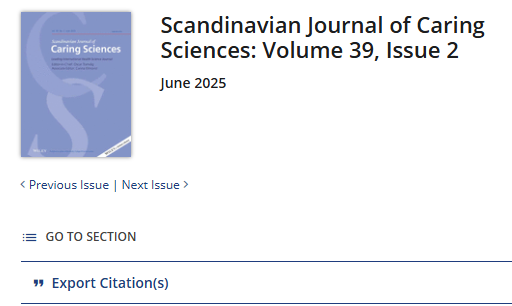
The Significance of Social Connections and Health in Relation to Loneliness Experienced by Older Adults Living at Home: A Qualitative Study
- Post by: Alper Idrisoglu
- 23 June, 2025
- No Comment
ABSTRACT
Background and Aim
Due to ageing, physical changes can affect one’s ability to actively engage with others, resulting in limitations in social connections comparable to loneliness. Hence, there is a need for research on how older adults avoid experiencing loneliness and thus promote health through social connections. The aim of this study was to describe the significance of social connections and health in relation to loneliness experienced by older adults living at home.
Methods
Older adults aged 65 years and older (n = 16) purposively selected from a longitudinal population-based multicentre study participated in semi-structured interviews. The interviews were conducted in January 2024, transcribed verbatim and analysed using inductive content analysis.
Findings
The findings illustrated one main category, Preventing loneliness, and three associated generic categories: The silver lining of connecting with oneself, Being surrounded by meaningful connections and Striving to maintain an active and healthy life.
Conclusion
Preventing loneliness may be one important aspect of healthy ageing. However, for some older adults, time alone offers enrichment and well-being, with routines playing a key role. Meaningful connections and feeling needed are crucial in preventing loneliness, especially as social networks may decline with age. An active and healthy life also prevents loneliness, though barriers like age-related limitations must be addressed. It is, therefore, important to address loneliness in society. Furthermore, it is essential that healthcare education incorporates the impact of loneliness on older adults to promote healthy ageing.
DOI:https://doi.org/10.1111/scs.70057
